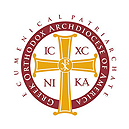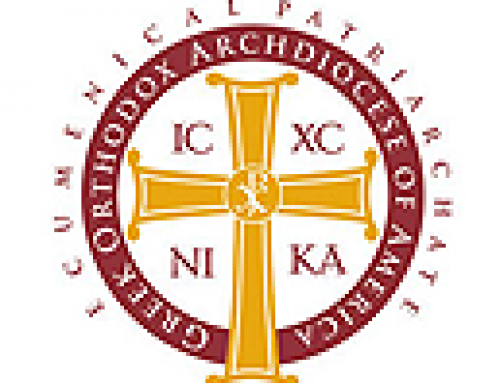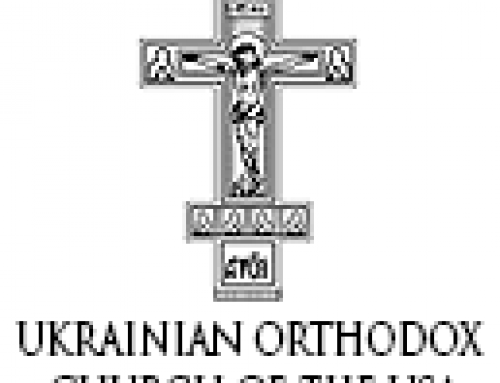This post was originally published on this site
Protocol No. 10/18
January 30, 2018
Feast of the Three Hierarchs and Greek Letters Day
To the Most Reverend Hierarchs, the Reverend Priests and Deacons, the Monks and Nuns, the Presidents and Members of the Parish Councils of the Greek Orthodox Communities, the Distinguished Archons of the Ecumenical Patriarchate, the Day, Afternoon, and Church Schools, the Philoptochos Sisterhoods, the Youth, the Hellenic Organizations, and the entire Greek Orthodox Family in America
Beloved Brothers and Sisters in Christ,
On our celebration of this holy commemoration of the Three Great Hierarchs and Ecumenical Teachers, Basil the Great, Gregory the Theologian, and John Chrysostom, we are mindful of our preparations for our 44th Biennial Clergy-Laity Congress which will be held in Boston, July 1-5. Our theme for the Congress will be All Things Are Possible to the One Who Believes in Christ, a theme that guides us to consider the limitless possibilities and tremendous potential of our faith. The Three Hierarchs understood and experienced this power and potential of our faith in Christ. Through their holiness of life, their dedication to service, their theological acumen and spiritual insight, and their faith, they knew that all things are possible to him who believes (Mark 9:23).
For the Three Hierarchs all things are possible through faith because of the honor that belongs to humankind as a race of rational creatures. For though we are flesh and blood, we are nonetheless endowed, through the gift of reason, with so many of the divine graces of our Creator. The Fathers, therefore, speak so often in voices of awe and wonder when considering the unique place of man in the dispensation of God. Saint Basil declares that “the mind is good, and in it we have that which is according to the image of the Creator” (Epistle 233). Saint John Chrysostom in turn takes up the idea of the mind as a means to holiness. From consideration of human abilities compared to the greater speed and bodily strength of animals, we may appreciate “the wisdom of God and the honor He has bestowed upon us.” Though human beings have not feathers and pinions like the eagle, they by reason can soar even higher, “as high as heaven, and above heaven itself, and above the heaven of heavens, even to where Christ sits at the right hand of God” (Homily 11, On the Statues).
The three great Hierarchs also knew that all things are possible for those who believe in Christ because of our ability through faith and reason to pursue all that is good and excellent. Saint Gregory the Theologian writes in his theological orations of the longing of our rational natures for God, which is frustrated by the weakness of our bodily nature. “Faint therefore with the desire,” our minds strive to know God by another means, which is to scrutinize the created order, and so “through the beauty and order of visible things to attain to that which is above sight” (Oration 28.13). In this same spirit does Saint Basil offer a prayerful wish: “May God grant you the knowledge of His truth, so that you may raise yourselves from visible things to the invisible Being, and that the grandeur and beauty of creatures may give you a just idea of the Creator” (Hexaemeron 2.10).
The Three Hierarchs also knew and experienced that all things are possible through our faith because of our relationship with Christ and the power and potential of the love that has been revealed through Him. Saint John Chrysostom states that Christ has shown his love to us in many ways: He has made known to us what He has heard from the Father; He calls us His friends and has chosen us for His divine work; and He has granted us the greatest of blessings by suffering for us. Further, Christ shows His great love for us by “remaining continually with those who shall bring forth fruit; for it is needful to enjoy His aid, and so to bear fruit” (Homily 77 on the Gospel of Saint John).
As we commemorate these holy Hierarchs, and with this Feast observe Greek Letters Day, we are beckoned by their words to contemplate the limitless possibilities of all that God can do in and through us. Because of our God given ability to reason and constantly push the boundaries of thought and understanding in our human experience, and through this unique faculty to be able to pursue all that is excellent and good–to perceive and engage with the wisdom and will of our Creator–all things are possible. This potential is affirmed by our rich Hellenic heritage, as expressed in so many facets of our history, culture, and language, an inheritance that demonstrates and lauds the potential of the mind, the potential of creativity, and the potential of life while constantly challenging the boundaries of human knowledge and ability. With this beautiful heritage we see even more the unlimited possibilities of our faith.
With paternal love in Christ,
† DEMETRIOS
Archbishop of America



